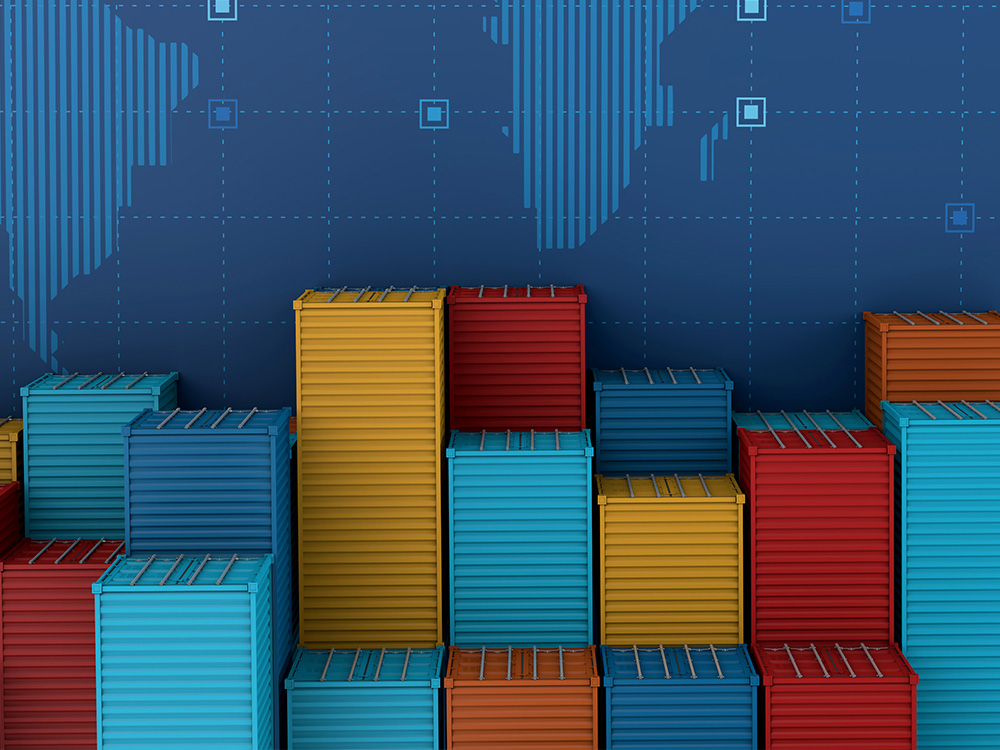Insights > Newsletters
Newsletters
International Trade and Customs Newsletter No. 1
March 14th, 2023

New SECEX Ordinance makes public interest assessments optional in original trade defense investigations
On March 7, 2023, the Foreign Trade Secretariat (“SECEX”) published Ordinance No. 237, which determines that public interest assessments will be optional in trade remedies investigations.
The initiation of the public interest assessment will be based on responses to Questionnaires filed by interested parties, or ex officio, at the discretion of the Department of Trade Remedies.
The public interest assessment will not be initiated based on Questionnaire submitted exclusively by foreign producers or exporters or by foreign governments that do not cooperate with the investigation.
The ordinance will enter into force on March 15, 2023.
New regulations set forth Brazilian institutional framework on foreign trade policy
On March 3, 2023, the Brazilian government issued Decrees No. 11,427/2023 and 11,428/2023, which set forth the institutional framework of the Ministry of Development, Industry, Commerce and Services (“MDIC”) and the Chamber of Foreign Trade (“CAMEX”).
The new regulations consolidate the governance of Brazilian foreign trade policy, which includes relevant agendas to the private sector, such as export financing, import tariffs and trade remedies.
Regarding CAMEX, the new Decree adjusted the members of the collegiate body to reflect the ministerial structure of the current government. No significant institutional changes were implemented in comparison with the framework provided for in the previous Decree (No. 10.044/2019). However, the Trade Strategy Council – which remained the highest ranked body for deliberation and definition of Brazilian trade policy guidelines – had its structure altered.
In turn, the Executive Management Committee (GECEX), which is in charge of setting import tariffs and levying trade remedies, will include the following members:
- Minister of MDIC
- Executive Secretary of the President’s Chief of Staff
- Secretary-General of Foreign Affairs of the Ministry of Foreign Affairs
- Executive Secretary of the Ministry of Finance
- Executive Secretary of the Ministry of Agriculture, Livestock and Food Supply
- Executive Secretary of the Ministry of Budget and Planning
- Executive Secretary of the Ministry of Management and Innovation in Public Services
- Executive Secretary of the Ministry of Defense
- Executive Secretary of Mines and Energy
- Executive Secretary of CAMEX (who will not be entitled to a vote).
Moreover, the new MDIC Decree details the structure of the Executive Secretariat of the Chamber of Foreign Trade (SE-CAMEX) by creating the following undersecretariats:
- Undersecretariat for Export Credit;
- Undersecretariat for Articulation on Trade Issues;
- Undersecretariat of Foreign Investments; and
- Undersecretariat for Studies and Analysis of Trade Policy.
The Decree also specified the attributions of the foreign Trade Secretariat (SECEX) and the Department of Trade Remedies (DECOM). There were not substantial structural changes to those bodies.
The full MDIC Decree can be accessed here and the full CAMEX Decree here.
EU’s green subsidies plan: opportunities and challenges for Brazilian companies
On February 1, 2023, the European Commission presented an industrial plan aimed at stimulating the competitiveness of European Union (“EU”) industries and assisting such industries in transitioning to more sustainable production processes and achieve climate neutrality.
The plan may bring opportunities for companies that export sustainable raw materials. On the other hand, it can potentially raise numerous concerns regarding the competitiveness of Brazilian companies, as such companies will have to be in compliance with European customs and regulatory measures, as well as the environmental standards established through the EU Green Deal (such as, for example, the Deforestation Act and the Carbon Border Adjustment Mechanism – CBAM) to access the European market, but without the benefits resulting from subsidies granted by the EU.
The package of measures, known as “Green Deal Industrial Plan”, is a response to the clean energy subsidy package introduced by the US government in 2022 (Inflation Reduction Act), which included USD 369 billion in incentives and funding for the development of “net-zero” technologies. Other countries have also been implementing similar measures, such as Japan (Japan’s Green Transformation Policy) and India (Production Linked Incentive Scheme for batteries and solar PV).
As a complement to the EU Green Deal, the plan aims to pivot Europe into a leader in the green technological revolution, through the joint efforts of European countries, and is in line with four main pillars:
- establishing a simplified and foreseeable regulatory environment;
- simplifying access to financing;
- improving industry skills; and
- opening trade for resilient value chains.
The plan provides for the creation of specific strategies to support the development of each of the four pillars, such as:
- Access to credit: the EU intends to strengthen the Recovery and Resilience Facility plan, which currently allocates around EUR 250 billion for environmental measures, including investments in the decarbonization of industries, by adding EUR 100 billion through the Just Transition Fund.
- Subsidies for renewable energy and industrial decarbonization processes: the EU intends to simplify access to “green” subsidy programs and encourage investments in the production of “net-zero” technologies, including the possibility of granting increased subsidies to match amounts received by foreign companies in similar projects.
- “Green” trade liberalization: the plan provides for initiatives that can potentially impact trade with Brazil, such as the Critical Raw Materials Club, which aims to establish partnerships between the European Union and countries that supply safe and sustainable raw materials. This plan also provides for the development of a strategy to facilitate export credit to European countries.
More information about EU’s plan can be consulted in the Commission’s Official Communication.
Brazil to resume negotiations regarding Mercosur-EU agreement
On March 7, 2023, negotiators from Mercosur and the European Union officially resumed negotiations aimed at entering into a free trade agreement (“FTA”) between the parties.
According to the Brazilian Ministry of Foreign Affairs, a work schedule has been set for the first half of 2023.
The Brazilian government intends to resume negotiations on the FTA and has pointed out the need for changes in the draft, mainly in the chapter referring to government procurement. Such statement was made by the president of Brazil, Luiz Inácio Lula da Silva, in a meeting with the Chancellor of Germany, Olaf Scholz.
Accordingly, Brazilian companies are expected to have more guarantees regarding potential access to the European market and the Brazilian government is expected to review its offer on government procurement.
The current wording of the agreement provides for the opening of Brazilian public procurement of goods and services worth more than 330,000 SDR (Special Drawing Rights) – approximately USD 430,000 –, five years after the entry into force of the agreement, which includes most agencies and bodies of the Executive, Legislative and Judiciary, with the exception of certain entities.
Related Partner
Related Lawyer
Giulia Tavares Murta
Vitor Fernando de Campos Leite
Vitória Linhares Malucelli
Related Areas
International Trade and Customs

















